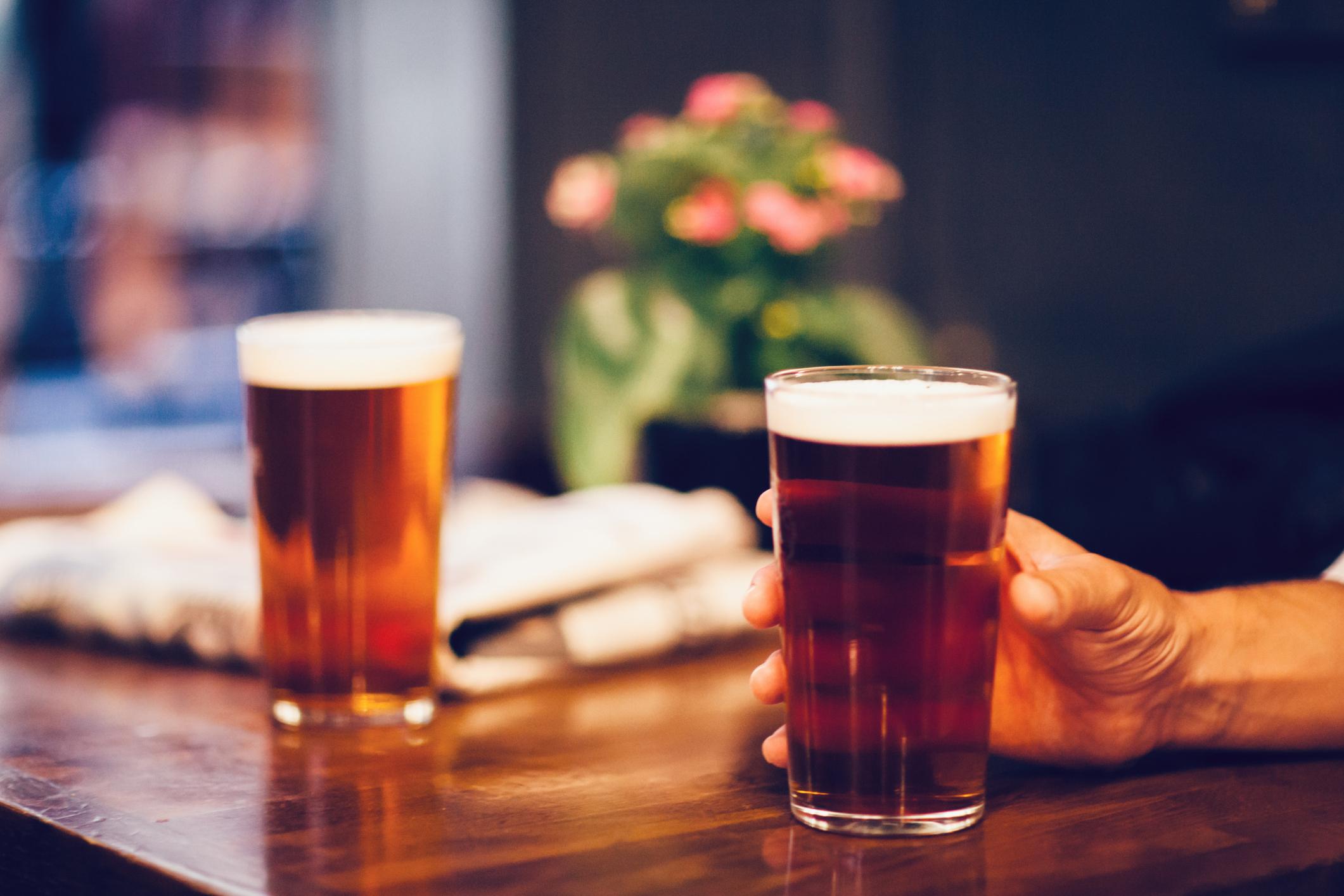Dry January 'is an abomination' dreamt up by 'misery merchants who are never happier than when they’re uncomfortable'
Our columnist Agromenes turns away from his usual focus to take a look at the Dry January movement. It's fair to say, er, that he's against it.


Exquisite houses, the beauty of Nature, and how to get the most from your life, straight to your inbox.
You are now subscribed
Your newsletter sign-up was successful
Dry January is an abomination. It’s a Puritan hangover deriving from the belief that all enjoyment should be punished. Bah! Humbug! Agromenes is firmly orthodox: great festivals should be fully celebrated and the 40 days of Christmas and 50 of Easter observed. Self denial comes earlier, in Advent and Lent — abstinence is a preparation for enjoyment and not a punishment.
Praise-God Barebone and his miserable Puritan crew thought good, healthy merry-making morally wrong. They therefore abolished Christmas and outlawed mince pies (as we looked at recently in ‘When Christmas was cancelled’). Yet, if the fortunate make themselves miserable, it doesn’t help the dispossessed and the unfortunate. Open-handed generosity, yes. Self-induced misery, no.
The Romans recognised the unpleasant nature of January and it’s not changed. We need to continue the spirit of Christmas to lighten its short and dark days. We should consign drink-free, meat-free January to the misery merchants who are never happier than when they’re uncomfortable. Our trouble is that this puritan spirit is endemic in British attitudes and spoils even the best of actions.
Going green is admirable, as long as it doesn’t involve insisting that it is a good thing to be cold or not to travel. We should bend our efforts to keep our homes warm in a way that doesn’t destroy the planet, but being cold for the sake of it doesn’t make us morally better. Avoiding unnecessary flights is important, but with a bit of planning there are railway alternatives. And there’s the rub. Our age of instant gratification doesn’t do planning.
"'Take the waiting out of wanting’ became the slogan became the motto of modern society."
We even abolished the Sunday Observance laws partly by arguing people couldn’t manage to prepare two whole days’ necessary provisions. We add enormously to our carbon footprint by ordering things at the last minute, expecting groceries to be delivered within an hour and getting the car out for journeys where there’s a perfectly reasonable public-transport alternative. We simply don’t want to bother to plan. Indeed, we talk about being time poor when, for most people, our hours of work are shorter, our domestic conveniences far greater and our access to services more extensive than for any previous generation. Those restrictions meant that our forebears had to plan. Our freedoms mean we don’t need to plan — at enormous cost to the planet.
That fundamental change in attitudes was encapsulated in 1972 with the establishment of Access, a credit card designed to compete with Barclaycard. A simple phrase was coined to express its advantages. ‘Take the waiting out of wanting’ was the claim and, by accident, the slogan became the motto of modern society. A society in which we have so much that we don’t need to plan and prepare, so much that we overindulge and so much that we feel the need to punish ourselves for it.
This is not to ignore the many, both here and abroad, who have too little. It is simply to acknowledge the global reality that the rich world is run for the comfortably off. We are the people who keep the wheels of a consumer society turning and it is to us that businesses sell our instant lives, from ready-cooked meals to same-day delivery. It’s all lastminute.com.
Exquisite houses, the beauty of Nature, and how to get the most from your life, straight to your inbox.
Today, it’s that society that is changing. Sixty years on, we see that everything won’t be available everywhere, always — even for the comfortably off. Food security has come back onto the political agenda. Worldwide weather changes imperil supply chains and, increasingly, the supplies themselves. They exacerbate geo-political tensions and instability.
The world is a more uncertain place and that uncertainty unsettles our instant society. Planning becomes more necessary and preparation the name of the game. We’ll find that we must wait more and want less. We might even discover that it makes life better.
Country Life is unlike any other magazine: the only glossy weekly on the newsstand and the only magazine that has been guest-edited by His Majesty The King not once, but twice. It is a celebration of modern rural life and all its diverse joys and pleasures — that was first published in Queen Victoria's Diamond Jubilee year. Our eclectic mixture of witty and informative content — from the most up-to-date property news and commentary and a coveted glimpse inside some of the UK's best houses and gardens, to gardening, the arts and interior design, written by experts in their field — still cannot be found in print or online, anywhere else.
